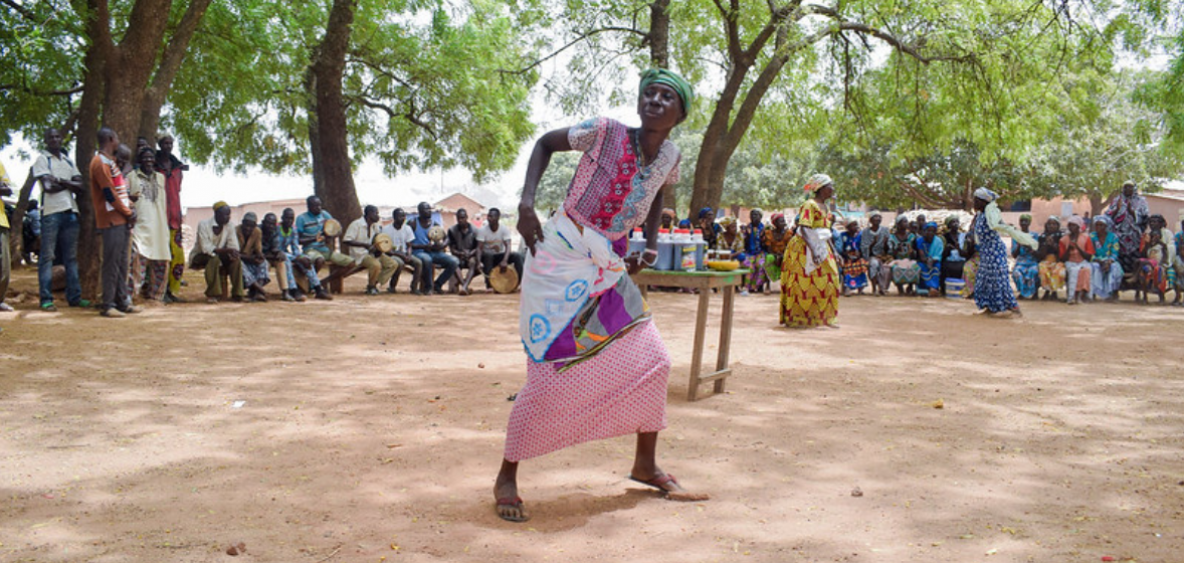 Credit: Samuel Asare
Credit: Samuel Asare Digital tools are making access to information more and more possible, and participatory videos are a great way for farmers to share their experiences with other farmers in their own countries and beyond. In the RFS Uganda project sites, Farmer Field Schools have partnered up with Access Agriculture to get in on the exchanges.
At the 2022 Resilient Food Systems (RFS) Annual Workshop, Eswatini project lead, Lynn Kota, said that, in her experience, “communities learn better from each other than from experts.”
This spirit of centring indigenous knowledge and community learning is central to the RFS approach because it builds mechanisms that will be sustained long after the programme leaves the target communities.
In RFS Uganda, Burundi and Tanzania, facilitated learning is conducted through Farmer Field Schools (FFS) by RFS Regional Hub partner, the Food and Agriculture Organisation of the United Nations (FAO). Facilitated learning happens when farmers take the lead in their own learnings by engaging in activities that are relevant to them, while being supported by facilitators to adopt interventions and new technologies that are useful in their contexts.
With the World increasingly digitizing, RFS is looking to digital tools to support learning and, most importantly, to support farmers.
FAO is spearheading this by investigating e-learning platforms to integrate into the FFS approach, and through the Making Every Voice Count for Adaptive Management (MEV-CAM) initiative, which supports participatory videos for farmers to communicate changes seen in their communities.
Seeing the incredible potential that digital tools have in reaching farmers and engaging youth to take up agriculture, the RFS Uganda team, with help from the local FFS, partnered with Access Agriculture to create a series of farmer-to-farmer training videos to support uptake of sustainable agricultural practices.
Access Agriculture has a vast library of over 220 of these videos with their 20 partner organisations across Africa and Southern Asia. The videos merge scientific and local knowledge, presented in local languages and translated into a handful of other languages on the website to encourage south-south learning exchanges.
After identifying 50 of the most relevant issues in RFS project communities in the Karamoja region of Northeastern Uganda, the team set to work alongside local farmers, creating videos in the Ngakaramojong language for easy access by their peers.
With equipment for video production and support for translations with 3 voiceovers covering the narration and interviewees of both sexes, 20 videos are now available for free on the Access Agriculture website, and are being used by other farmers in Uganda and across the world.
Be sure to check the website when it gets its upcoming revamp as the other 30 videos are on their way, but in the meantime,
Subscribe to our monthly newsletter to receive updates on stories directly from the field across all our projects, upcoming events, new resources, and more.